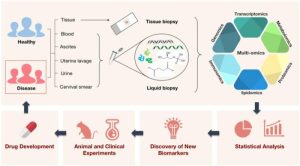Step into the world of pharmaceutical drugs for mental health where science meets well-being in a pill! Learn about how these medications play a crucial role in managing mental health conditions and the unique benefits they offer.
Get ready to explore the fascinating realm of mental health treatment through pharmaceutical drugs and discover the ins and outs of this important topic.
Introduction to Pharmaceutical Drugs for Mental Health
Pharmaceutical drugs for mental health refer to medications specifically designed to treat various mental health conditions such as depression, anxiety, bipolar disorder, schizophrenia, and ADHD.These drugs play a crucial role in managing mental health conditions by helping to regulate brain chemistry, neurotransmitters, and mood. They are often prescribed in conjunction with therapy to provide a comprehensive treatment approach.
Differences from Other Treatment Options
- Pharmaceutical drugs for mental health directly target brain chemistry and neurotransmitters, providing a more immediate and specific treatment compared to other options.
- Unlike therapy alone, medication can help alleviate symptoms quickly, especially during acute episodes of mental illness.
- Pharmaceutical drugs can be a more accessible and convenient treatment option for individuals who may have difficulty attending regular therapy sessions.
- For certain mental health conditions, such as severe depression or schizophrenia, pharmaceutical drugs may be essential in stabilizing symptoms and preventing relapse.
Common Pharmaceutical Drugs for Mental Health
Pharmaceutical drugs are commonly used in the treatment of mental health disorders to help manage symptoms and improve overall well-being. It is important to understand how these drugs work and the potential side effects associated with them.
Antidepressants
Antidepressants are commonly prescribed to treat depression, anxiety disorders, and other mood disorders. They work by increasing the levels of neurotransmitters in the brain, such as serotonin, to help regulate mood and emotions.
- Selective Serotonin Reuptake Inhibitors (SSRIs): Examples include Prozac, Zoloft, and Lexapro. They are known to have fewer side effects compared to other antidepressants.
- Tricyclic Antidepressants (TCAs): Examples include amitriptyline and nortriptyline. They are effective but may cause more side effects.
- Monoamine Oxidase Inhibitors (MAOIs): Examples include Nardil and Parnate. They are usually prescribed when other antidepressants have not been effective.
Antipsychotics
Antipsychotic medications are used to manage symptoms of schizophrenia, bipolar disorder, and other psychotic disorders. They work by blocking dopamine receptors in the brain to help reduce hallucinations, delusions, and other psychotic symptoms.
- First Generation Antipsychotics: Examples include Haldol and Thorazine. They are effective but may have more side effects such as movement disorders.
- Second Generation Antipsychotics: Examples include Risperdal, Abilify, and Seroquel. They are often preferred due to fewer side effects, but may still cause weight gain and metabolic issues.
Anti-anxiety Medications
Anti-anxiety medications are prescribed to help manage symptoms of anxiety disorders, panic attacks, and insomnia. They work by enhancing the effects of neurotransmitters like GABA to promote relaxation and reduce anxiety.
- Benzodiazepines: Examples include Xanax, Ativan, and Valium. They are fast-acting but can be habit-forming and may cause sedation and cognitive impairment.
- Buspirone: This medication is used for generalized anxiety disorder and has a lower risk of dependence compared to benzodiazepines.
Benefits and Challenges of Pharmaceutical Drugs

When it comes to treating mental health conditions, pharmaceutical drugs play a crucial role in providing relief and improving the quality of life for many individuals. However, relying solely on medication for mental health management has its own set of challenges and limitations. Let’s explore the benefits and challenges of using pharmaceutical drugs for mental health treatment.
Benefits of Pharmaceutical Drugs for Mental Health
- Effective symptom management: Pharmaceutical drugs can help alleviate symptoms of mental health disorders such as depression, anxiety, bipolar disorder, and schizophrenia.
- Improved quality of life: By reducing symptoms, medication can improve overall functioning and quality of life for individuals struggling with mental health issues.
- Quick relief: In some cases, pharmaceutical drugs can provide rapid relief from acute symptoms, allowing individuals to feel better sooner.
- Regulated dosages: Medications are prescribed at specific dosages, making it easier for healthcare providers to monitor and adjust treatment as needed.
Challenges of Relying on Pharmaceutical Drugs Alone
- Side effects: Pharmaceutical drugs can come with a range of side effects, some of which may be unpleasant or severe, impacting the individual’s well-being.
- Tolerance and dependence: Some medications can lead to tolerance or dependence, requiring higher doses over time or making it difficult to stop taking them without experiencing withdrawal symptoms.
- Masking underlying issues: While medication can help manage symptoms, it may not address the root cause of the mental health condition, leading to ongoing issues if not combined with other forms of treatment.
- Not a long-term solution: Pharmaceutical drugs may provide relief in the short term, but they may not be a sustainable long-term solution for managing mental health conditions.
Comparison with Other Forms of Treatment
- Therapy: While pharmaceutical drugs focus on symptom management, therapy can address underlying issues and provide coping strategies for long-term mental health management.
- Lifestyle changes: Incorporating lifestyle changes such as exercise, healthy diet, and stress management techniques can complement medication and improve overall mental well-being.
- Combined approach: A combination of pharmaceutical drugs, therapy, and lifestyle changes may be the most effective approach for managing mental health conditions, addressing symptoms, underlying causes, and overall well-being.
Regulations and Safety Concerns
Pharmaceutical drugs for mental health conditions undergo a rigorous regulatory process to ensure their safety and efficacy before being approved for use in patients. These regulations are in place to protect the health and well-being of individuals seeking treatment for mental health issues.
Regulatory Process for Approving Pharmaceutical Drugs
- Before a pharmaceutical drug can be approved for use in treating mental health conditions, it must undergo preclinical testing in laboratories to assess its safety and potential efficacy.
- If the preclinical testing shows promising results, the drug then moves on to clinical trials, where it is tested on human subjects to further evaluate its safety and effectiveness.
- The clinical trials involve multiple phases, each with specific objectives, such as determining the optimal dosage, identifying potential side effects, and assessing the drug’s overall benefits.
- Once the drug successfully completes all phases of the clinical trials and demonstrates its safety and efficacy, it can be submitted to regulatory authorities for approval.
Safety Concerns Related to Pharmaceutical Drugs for Mental Health
- One of the main safety concerns related to the use of pharmaceutical drugs for mental health is the potential for misuse or addiction, especially with medications that have a high risk of dependence.
- Patients should be vigilant about following their healthcare provider’s instructions regarding the dosage and frequency of the medication to minimize the risk of misuse or addiction.
- It is essential for patients to communicate openly with their healthcare providers about any concerns or side effects they may be experiencing while taking the medication.
- Regular monitoring by healthcare providers can help ensure the safe use of pharmaceutical drugs for mental health and prevent any potential adverse reactions or complications.
Healthcare Integration and Holistic Approaches
Pharmaceutical drugs play a crucial role in the treatment of mental health conditions, but they are just one piece of the puzzle in a holistic approach to mental healthcare. Integrating pharmaceutical drugs with other forms of treatment is essential to provide comprehensive care and support to individuals struggling with mental health issues. By combining medication with therapy, lifestyle changes, and other interventions, healthcare providers can address the multifaceted nature of mental health disorders and improve overall outcomes for patients.
Importance of Integrating Pharmaceutical Drugs with Other Treatments
When pharmaceutical drugs are used in conjunction with therapy, such as cognitive-behavioral therapy or counseling, patients often experience better symptom management and long-term recovery. Medication can help alleviate acute symptoms, while therapy provides coping strategies and tools to address underlying issues contributing to mental health disorders.
Successful Integrative Approaches to Mental Health Treatment
- Collaborative Care Models: These models involve a team-based approach where primary care providers, mental health specialists, and pharmacists work together to coordinate care for patients with mental health conditions. By integrating medication management, therapy, and support services, collaborative care models have been shown to improve treatment outcomes and patient satisfaction.
- Complementary Therapies: Integrating pharmaceutical drugs with complementary therapies such as yoga, mindfulness meditation, and art therapy can enhance the overall effectiveness of treatment. These holistic approaches address the physical, emotional, and spiritual aspects of mental health, promoting healing and well-being.
- Peer Support Programs: Peer-led support groups and peer coaching programs can complement pharmaceutical treatment by providing social support, empathy, and encouragement to individuals navigating mental health challenges. Peer support has been shown to reduce feelings of isolation and stigma, leading to improved treatment adherence and outcomes.
Alternative Treatment Options
Alternative treatment options for mental health conditions offer a different approach to managing symptoms compared to pharmaceutical drugs. These options focus on holistic well-being, incorporating various techniques and therapies to address mental health concerns.
Cognitive Behavioral Therapy (CBT)
Cognitive Behavioral Therapy (CBT) is a widely used alternative treatment for mental health conditions. It focuses on identifying and changing negative thought patterns and behaviors that contribute to mental health issues. CBT has been shown to be effective in treating anxiety disorders, depression, and other mental health conditions.
Mindfulness and Meditation
Mindfulness and meditation practices are becoming increasingly popular as alternative treatments for mental health. These practices help individuals become more aware of their thoughts and emotions, promoting relaxation and stress reduction. Research has shown that mindfulness and meditation can improve symptoms of anxiety, depression, and PTSD.
Exercise and Physical Activity
Regular exercise and physical activity have been linked to improved mental health outcomes. Physical activity releases endorphins, which are known as “feel-good” hormones that can help reduce symptoms of anxiety and depression. Incorporating exercise into a mental health treatment plan can provide both physical and psychological benefits.
Nutritional Therapy
Nutritional therapy focuses on the role of diet in mental health. Certain nutrients, such as omega-3 fatty acids and vitamins B and D, have been associated with improved mental well-being. A balanced diet that includes these nutrients can support overall mental health and potentially reduce symptoms of mental health conditions.
Health Addictions and Pharmaceutical Drugs
When it comes to mental health treatment, the use of pharmaceutical drugs can sometimes lead to addiction issues. This complex relationship between mental health conditions, pharmaceutical drugs, and addiction requires careful consideration and management.
Impact of Addiction on Mental Health Treatment
Individuals struggling with addiction may face challenges in adhering to their prescribed pharmaceutical drug regimen for mental health. Addiction can alter brain chemistry, leading to tolerance, dependence, and potentially dangerous behaviors.
- Addiction may result in misuse or abuse of pharmaceutical drugs, compromising the effectiveness of treatment.
- Patients may prioritize obtaining drugs for their addictive behavior over following their mental health treatment plan.
- Withdrawal symptoms from addiction can exacerbate mental health symptoms, making it harder to manage the underlying condition.
Strategies for Addressing Addiction Concerns
Addressing addiction concerns in patients using pharmaceutical drugs for mental health requires a comprehensive approach that considers both the addiction and mental health components.
- Implementing regular monitoring and screening for signs of addiction in patients receiving pharmaceutical drugs for mental health.
- Providing education and counseling on the risks of addiction and the importance of adhering to prescribed treatment plans.
- Collaborating with addiction specialists or support groups to address addictive behaviors and provide additional resources for patients.
- Exploring alternative treatment options or therapies that can address both mental health needs and addiction concerns simultaneously.
Health Dentistry and Mental Health Medications
When it comes to mental health medications, it’s important to consider how they can impact dental health. The medications used to treat mental health conditions can have various effects on oral health, leading to specific dental concerns.
Common Dental Concerns Associated with Mental Health Medications
- Dry Mouth: Many psychiatric medications can cause dry mouth, which reduces saliva production and increases the risk of tooth decay and gum disease.
- Gum Disease: Some medications may contribute to gum inflammation and increase the likelihood of developing gum disease.
- Tooth Decay: The side effects of certain mental health medications, such as sugar cravings or dry mouth, can lead to an increased risk of tooth decay.
Tips for Maintaining Good Dental Health while on Mental Health Medications
- Stay Hydrated: Drink plenty of water to combat dry mouth and promote saliva production.
- Practice Good Oral Hygiene: Brush and floss regularly to prevent tooth decay and gum disease.
- Regular Dental Check-ups: Visit your dentist regularly for cleanings and check-ups to catch any dental issues early.
- Communicate with Your Healthcare Providers: Inform your dentist about the medications you are taking to receive personalized dental care.
Health Fitness and Mental Health Medications
Regular physical activity and exercise can play a significant role in enhancing the effectiveness of mental health medications. By incorporating fitness routines into their daily lives, individuals can experience improved mental well-being and overall health. Let’s explore the connection between health fitness and mental health medications in more detail.
The Impact of Exercise on Mental Health
Regular exercise has been shown to have numerous benefits for mental health. Physical activity can help reduce symptoms of anxiety and depression, improve mood, boost self-esteem, and enhance cognitive function. When combined with pharmaceutical drugs for mental health, exercise can complement the effects of these medications and lead to better treatment outcomes.
- Exercise releases endorphins, which are natural mood lifters that can help alleviate symptoms of depression and anxiety.
- Physical activity promotes better sleep patterns, which is essential for overall mental well-being and medication effectiveness.
- Regular exercise can reduce stress levels and improve overall mental resilience, making individuals more responsive to their medication regimen.
Balancing Fitness Routines with Medication Regimen
Finding the right balance between fitness routines and medication regimen is crucial for individuals managing their mental health. Here are some recommendations to help individuals incorporate exercise into their treatment plan effectively:
- Consult with a healthcare provider before starting any new fitness routine to ensure it aligns with your medication regimen and overall health goals.
- Set realistic fitness goals and gradually increase the intensity of your workouts to avoid burnout or injury.
- Find physical activities that you enjoy and are sustainable in the long term to maintain consistency and reap the mental health benefits.
- Monitor how exercise impacts your mood and mental well-being, and communicate any changes to your healthcare provider to adjust your medication as needed.
Health Medicine and Mental Health Treatments

In the realm of mental health treatments, health medicine plays a crucial role in addressing various conditions. Let’s delve into the comparison between pharmaceutical drugs and other forms of medical treatments for mental health, the significance of medication management, and the collaborative efforts of healthcare providers to enhance treatment outcomes.
Comparing Pharmaceutical Drugs with Other Medical Treatments
When it comes to treating mental health conditions, pharmaceutical drugs are often utilized alongside other forms of medical treatments such as therapy, counseling, and lifestyle interventions. While pharmaceutical drugs can help alleviate symptoms and regulate brain chemistry, they may not address the root causes of mental health disorders. On the other hand, alternative treatments like cognitive-behavioral therapy (CBT), mindfulness practices, and holistic approaches focus on understanding and changing patterns of thinking and behavior.
Each treatment method has its own benefits and limitations, and a personalized approach that combines different modalities may yield the best results for patients.
Role of Medication Management in Mental Health Care
Medication management is a critical aspect of mental health care that involves monitoring the effectiveness and side effects of psychiatric medications. Healthcare providers work closely with patients to adjust dosages, switch medications if needed, and ensure compliance to treatment regimens. Proper medication management is essential for maximizing the therapeutic benefits of pharmaceutical drugs while minimizing risks and adverse reactions. It requires ongoing communication between patients, prescribers, and mental health professionals to tailor treatment plans according to individual needs and responses.
Collaborative Efforts in Optimizing Mental Health Treatment Outcomes
Healthcare providers, including psychiatrists, psychologists, primary care physicians, and therapists, collaborate to optimize mental health treatment outcomes through a multidisciplinary approach. By sharing expertise, coordinating care, and integrating different treatment modalities, providers can address the complex nature of mental health conditions comprehensively. This collaborative effort ensures that patients receive holistic and individualized care that considers their unique circumstances, preferences, and treatment goals.
Through effective communication and teamwork, healthcare providers strive to enhance patient outcomes, promote recovery, and improve overall well-being.
Health Pharmacy and Pharmaceutical Drugs
Pharmacies play a crucial role in dispensing and managing pharmaceutical drugs for mental health conditions. They serve as the link between healthcare providers and patients, ensuring that medications are properly prescribed, filled, and monitored.
Importance of Medication Adherence and Proper Dosage
- Adhering to prescribed medication regimens is essential for the effectiveness of mental health treatment. Skipping doses or altering dosages without medical guidance can lead to relapse or worsening of symptoms.
- Proper dosage is critical in achieving the desired therapeutic effects while minimizing potential side effects. Pharmacists play a key role in counseling patients on the importance of following dosage instructions accurately.
- Regular follow-ups with healthcare providers and pharmacists can help monitor the efficacy of the medication and make necessary adjustments to dosage or treatment plans.
Tips for Safely Storing and Taking Prescribed Mental Health Medications
- Store medications in a cool, dry place away from direct sunlight and moisture to maintain their potency.
- Keep medications out of reach of children and pets to prevent accidental ingestion.
- Follow the specific instructions provided by your healthcare provider or pharmacist regarding the timing and frequency of medication intake.
- Use a pill organizer or set alarms to help remember to take your medications on time.
- Avoid sharing your medications with others, as they are prescribed based on individual needs and medical history.
Weight Loss and Mental Health Medications
Taking medications for mental health conditions can sometimes lead to changes in weight and metabolism. It’s important to be aware of these potential side effects and how to manage them effectively.
Impact of Mental Health Medications on Weight and Metabolism
- Some psychiatric medications may cause weight gain as a side effect due to changes in appetite or metabolism.
- Others may lead to weight loss by suppressing appetite or altering the way the body processes nutrients.
- Changes in weight can impact self-esteem and overall mental health, creating a complex interplay between medication effects and psychological well-being.
Strategies for Managing Weight Changes Associated with Certain Pharmaceutical Drugs
- Monitor your weight regularly and communicate any significant changes with your healthcare provider.
- Focus on a balanced diet rich in fruits, vegetables, lean proteins, and whole grains to support overall health and weight management.
- Incorporate regular physical activity into your routine to help maintain a healthy weight and improve mood and energy levels.
- Consult with a nutritionist or dietitian to develop a personalized meal plan that aligns with your medication regimen and health goals.
Guidance on Maintaining a Healthy Weight While Taking Medications for Mental Health Conditions
- Seek guidance from your healthcare provider on the potential side effects of your specific medication and how they may impact weight.
- Stay informed and educated about healthy lifestyle habits that can support weight management alongside your treatment plan.
- Consider joining a support group or seeking counseling to address any emotional challenges related to weight changes and mental health medication.
- Remember that individual responses to medication can vary, so it’s essential to work closely with your healthcare team to find the best approach for your unique needs.
Women & Health: Mental Health Medications
Women face unique considerations when taking pharmaceutical drugs for mental health. Factors such as hormonal changes and pregnancy can significantly influence the effectiveness of these medications. It is important for women to be aware of these factors and how they can impact their mental health treatment.
Hormonal Changes and Medication Effectiveness
Women experience hormonal changes throughout their lives, such as during menstruation, pregnancy, and menopause. These hormonal fluctuations can affect how their bodies metabolize medications used to treat mental health conditions. It is essential for women to communicate openly with their healthcare providers about these changes to ensure the effectiveness of their medication.
Pregnancy and Mental Health Medications
Pregnancy poses a unique challenge for women taking mental health medications. Some medications may not be safe to use during pregnancy due to potential risks to the developing fetus. It is crucial for women who are pregnant or planning to become pregnant to consult with their healthcare provider to explore alternative treatment options that are safe for both mother and baby.
Women-Specific Mental Health Resources
There are mental health resources available that are specifically tailored to meet the needs of women. These resources may include support groups, counseling services, and educational materials that address the unique mental health challenges that women may face. It is important for women to take advantage of these resources to support their mental well-being.
Summary
As we wrap up our journey through the landscape of pharmaceutical drugs for mental health, remember that these medications, when used effectively, can truly make a difference in improving the quality of life for individuals facing mental health challenges. Stay informed, stay empowered, and prioritize your mental well-being.
Expert Answers
Can pharmaceutical drugs completely cure mental health conditions?
Pharmaceutical drugs can help manage symptoms effectively, but they are not always a cure. They are often used in conjunction with other treatments for best results.
Are there natural alternatives to pharmaceutical drugs for mental health?
Yes, there are alternative treatments like therapy, lifestyle changes, and holistic approaches that can complement or sometimes even replace pharmaceutical drugs.
What should I do if I experience side effects from mental health medications?
It’s important to consult your healthcare provider immediately if you experience any side effects. They can adjust your medication or suggest alternative options.



:max_bytes(150000):strip_icc()/jefit-fitness-weight-loss-app-d22c2acaf9e34127b6face554591c325.jpg?w=700)

